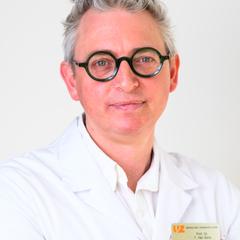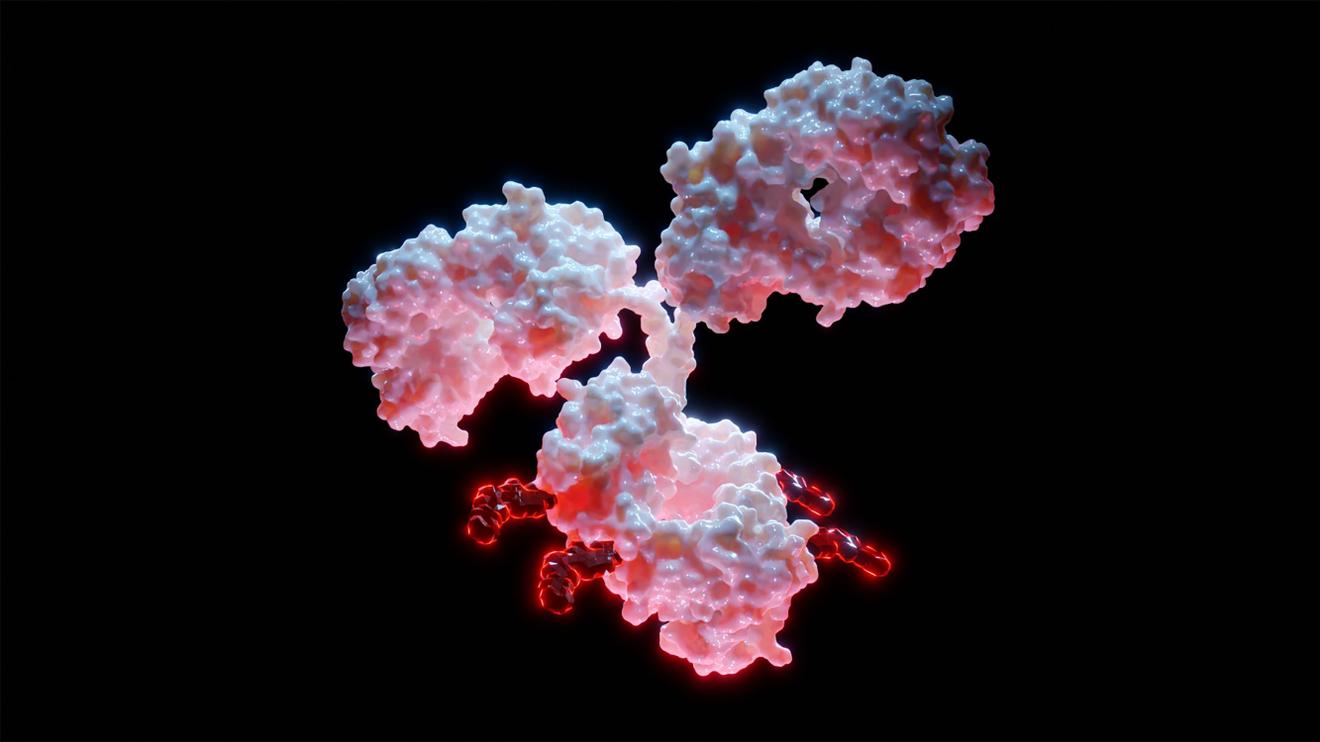Chemotherapy is a known and powerful treatment that not only damages cancer cells, but also healthy cells. This leads to adverse effects such as hair loss and fatigue. In contrast, an antibody-drug- conjugate (ADC) is a relatively new type of medication that consists of an antibody to which chemotherapy was attached. In contrast to the classic treatment with chemotherapy, the chemo can reach cancer cells in a targeted way.
Prof. dr. Toon Van Gorp, head of department of gynaecological oncology at UZ Leuven and principal investigator of the study, explains: “The antibody binds to certain proteins on the outside of the cancer cell. Like a Trojan horse, the cancer cell will bring the ADC inside and then break it down. This releases the chemotherapy and attacks the cancer cell. As a result of the targeting nature of the ADC we're seeing fewer adverse effects while at the same time still eliminate the cancer cells more selectively.”
Breakthrough
The international study took place between February 2020 and March 2023. Spread across 21 countries worldwide, 453 patients with platinum-resistant ovarian cancer were randomly assigned: they were either given treatment with the ADC ‘mirvetuximab soravtansine’, or classic chemotherapy. In the group treated with mirvetuximab soravtansine the disease was kept at bay for longer and the treatment was generally tolerated better.
“It is the very first time in more than thirty years that a new medication shows better survival in chemotherapy resistant disease.” Prof. dr. Toon Van Gorp
Prof. dr. Toon Van Gorp
Prof. dr. Toon Van Gorp: “Ovarian cancer can usually be treated well with platinum-based chemotherapy, but over time almost all patients lapse because the tumour cells become resistant. The moment ovarian cancer is no longer susceptible to platinum based-chemotherapy, the disease becomes very hard to treat. This new treatment gives hope to our patients. It is the very first time in more than thirty years that a new medication can show better survival in chemotherapy-resistant disease."
The new study is a big step in the right direction for the treatment of ovarian cancer. After all, it is still the gynaecological cancer with the highest risk of mortality.
ADCs
The first ADCs were developed twenty years ago for the treatment of blood cancers, because the latter are very easy to attack with antibodies that also circulate in the bloodstream. This was followed by breast cancer. The last five years, the evolution has gone very quickly; now one ADC after another is being developed and tested. Not all ADCs are succesful and make it to a phase 3 study, but those that two seem to work better than chemotherapy.
This treatment method is not yet used in Europe outside of study settings, because the treatment has not yet been approved by the European Medication Agency EMA. In the USA, medication can already be prescribed.
Read the study via the following link: https://www.nejm.org/doi/pdf/10.1056/NEJMoa2309169?articleTools=true
